Ditapis dengan
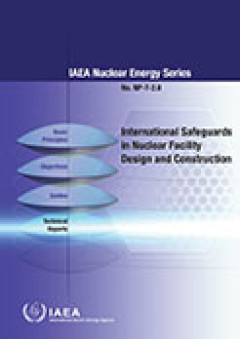
International Safeguards in Nuclear Facility Design and Construction: IAEA Nu…
This IAEA publication provides guidance on the inclusion of safeguards considerations in nuclear facility design and construction. This first volume introduces the basic principles of safeguards by design and discusses the goals, costs and rewards, and places the information into the context of nuclear facility design and construction. Benefits and opportunities for all stakeholders are emphasi…
- Edisi
- -
- ISBN/ISSN
- 978-92-0-140610-1
- Deskripsi Fisik
- 22 p.; 30 cm.
- Judul Seri
- IAEA Nuclear Energy Series
- No. Panggil
- 621.483 IAE i (2)
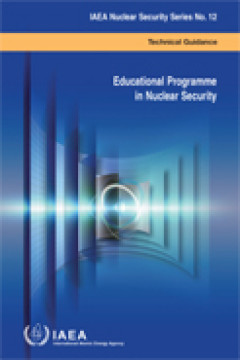
Educational Programme in Nuclear Security | IAEA Nuclear Security Series No. 12
Higher education plays an essential role in nuclear security capacity building. It ensures the availability of experts able to provide the necessary competencies for effective national nuclear security oversight of nuclear and other radioactive material and to establish and maintain an appropriate nuclear regime in a State. This publication presents both the theoretical knowledge and the practi…
- Edisi
- -
- ISBN/ISSN
- 978-92-0-101710-9
- Deskripsi Fisik
- 186 p
- Judul Seri
- -
- No. Panggil
- 621.48 IAE E
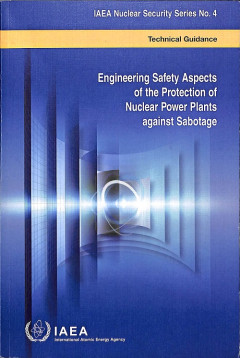
Engineering Safety Aspects of the Protection of Nuclear Power Plants Against …
This publication provides guidelines for evaluating the engineering safety aspects of the protection of nuclear power plants against sabotage. The guidance, which is the result of extensive dialogue among safety and security specialists, takes into account the existing robustness of structures, systems and components and emphasizes those aspects of sabotage protection that work synergistically …
- Edisi
- 4
- ISBN/ISSN
- 9201099061 / 18169317
- Deskripsi Fisik
- 58 p. : Illus. ; 24 cm
- Judul Seri
- Nuclear Security Series No. 4
- No. Panggil
- 621.483 IAE E
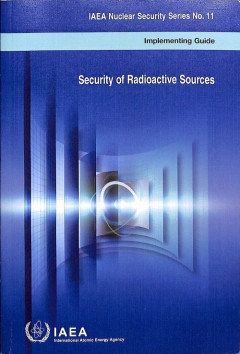
Security of Radioactive Sources | IAEA Nuclear Security Series No. 11
This publication offers guidance for implementing security measures on radioactive sources. It also provides advice on implementing security related provisions in the Code of Conduct on the Safety and Security of Radioactive Sources
- Edisi
- -
- ISBN/ISSN
- 9789201026095 / 18169317
- Deskripsi Fisik
- 77 p. : Illus. ; 29 cm
- Judul Seri
- Nuclear Security Series No. 11 (Implementing Guide)
- No. Panggil
- 621.039 IAE S
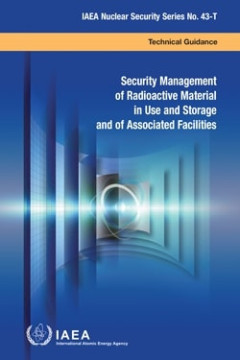
Security Management of Radioactive Material in Use and Storage and of Associa…
The IAEA Nuclear Security Series provides international consensus guidance on all aspects of nuclear security to support States as they work to fulfil their responsibility for nuclear security. The IAEA establishes and maintains this guidance as part of its central role in providing nuclear security related international support and coordination. The IAEA Nuclear Security Series was launched in…
- Edisi
- -
- ISBN/ISSN
- 978–92–0–118321–7
- Deskripsi Fisik
- 68 p
- Judul Seri
- IAEA nuclear security series
- No. Panggil
- 620.267:343.852 IAE s
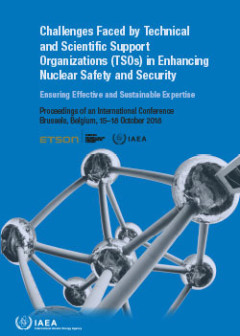
Challenges Faced by Technical and Scientific Support Organizations (TSOs) in …
The global nuclear safety and security framework (GNSSF) provides a conceptual structure and guidelines for achieving and maintaining a high level of safety and security at nuclear facilities and in nuclear related activities around the world. Technical and scientific support organizations (TSOs) play an essential role in sustaining the GNSSF by providing assistance to regulatory bodies in esta…
- Edisi
- -
- ISBN/ISSN
- 978-92-0-121021-0
- Deskripsi Fisik
- 258 p
- Judul Seri
- Proceedings Series - International Atomic Energy Agency
- No. Panggil
- 621.039.58 IAE c
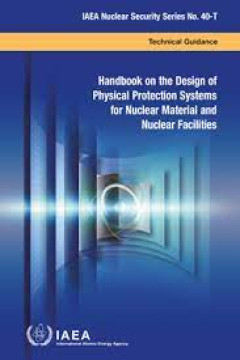
Handbook on the Design of Physical Protection Systems for Nuclear Material an…
This publication provides comprehensive detailed guidance for States, competent authorities and operators on how to implement the recommendations and implementing guidance of existing IAEA Nuclear Security Series publications for an effective physical protection system (PPS) for nuclear facilities and nuclear materials in use and storage. It provides further technical detail on how to design an…
- Edisi
- 2021
- ISBN/ISSN
- 978-92-0-100120-7
- Deskripsi Fisik
- 200 p
- Judul Seri
- IAEA Nuclear Security Series No. 40-T
- No. Panggil
- 621.039.58
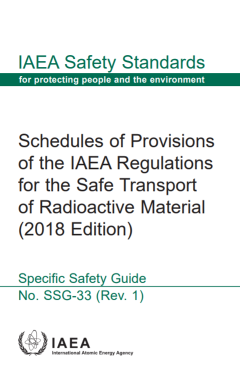
Schedules of provisions of the IAEA regulations for the safe transport of ra…
Radioactivity is a natural phenomenon and natural sources of radiation are features of the environment. Radiation and radioactive substances have many beneficial applications, ranging from power generation to uses in medicine, industry and agriculture. The radiation risks to workers and the public and to the environment that may arise from these applications have to be assessed and, if necessar…
- Edisi
- 2021
- ISBN/ISSN
- 978-92-0-121921-3
- Deskripsi Fisik
- 322 p
- Judul Seri
- IAEA Safety Standards Series No. SSG-33 (Rev. 1)
- No. Panggil
- 656.073 IAE s
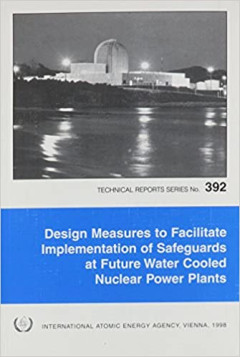
Design Measures to FacilitateImplementation of Safeguards at Future Water Coo…
This report presents guidelines to the designers of water cooled power reactors which will minimize the impact of IAEA safeguards on plant operations and ensure efficient and effective acquisition of safeguards data to the mutual benefit of the Member State, the plant operator and the IAEA. These guidelines incorporate the IAEA's experience in establishing and carrying out safeguards at current…
- Edisi
- -
- ISBN/ISSN
- 9201047983 / 0074-1014
- Deskripsi Fisik
- 94 p. : illus. ; 24 cm
- Judul Seri
- Technical Reports Series No. 392
- No. Panggil
- -
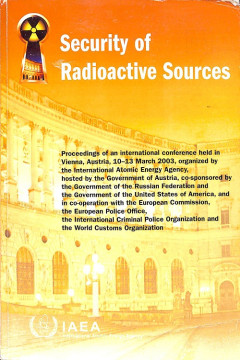
Security of Radioactive Sources: Proceedings of an International Conference H…
Accidents involving radioactive sources and reports of illicit trafficking in radioactive materials have raised awareness of the safety and security risks created by sources that are outside effective control, and the attacks of 11 September 2001 have triggered international concern about the potential malevolent use of radioactive sources by terrorist groups. The International Conference on Se…
- Edisi
- -
- ISBN/ISSN
- 9201074034 / 00741884
- Deskripsi Fisik
- 617 p. : Illus. ; 24 cm
- Judul Seri
- Proceedings Series
- No. Panggil
- 363.17996 IAE S
 Karya Umum
Karya Umum  Filsafat
Filsafat  Agama
Agama  Ilmu-ilmu Sosial
Ilmu-ilmu Sosial  Bahasa
Bahasa  Ilmu-ilmu Murni
Ilmu-ilmu Murni  Ilmu-ilmu Terapan
Ilmu-ilmu Terapan  Kesenian, Hiburan, dan Olahraga
Kesenian, Hiburan, dan Olahraga  Kesusastraan
Kesusastraan  Geografi dan Sejarah
Geografi dan Sejarah